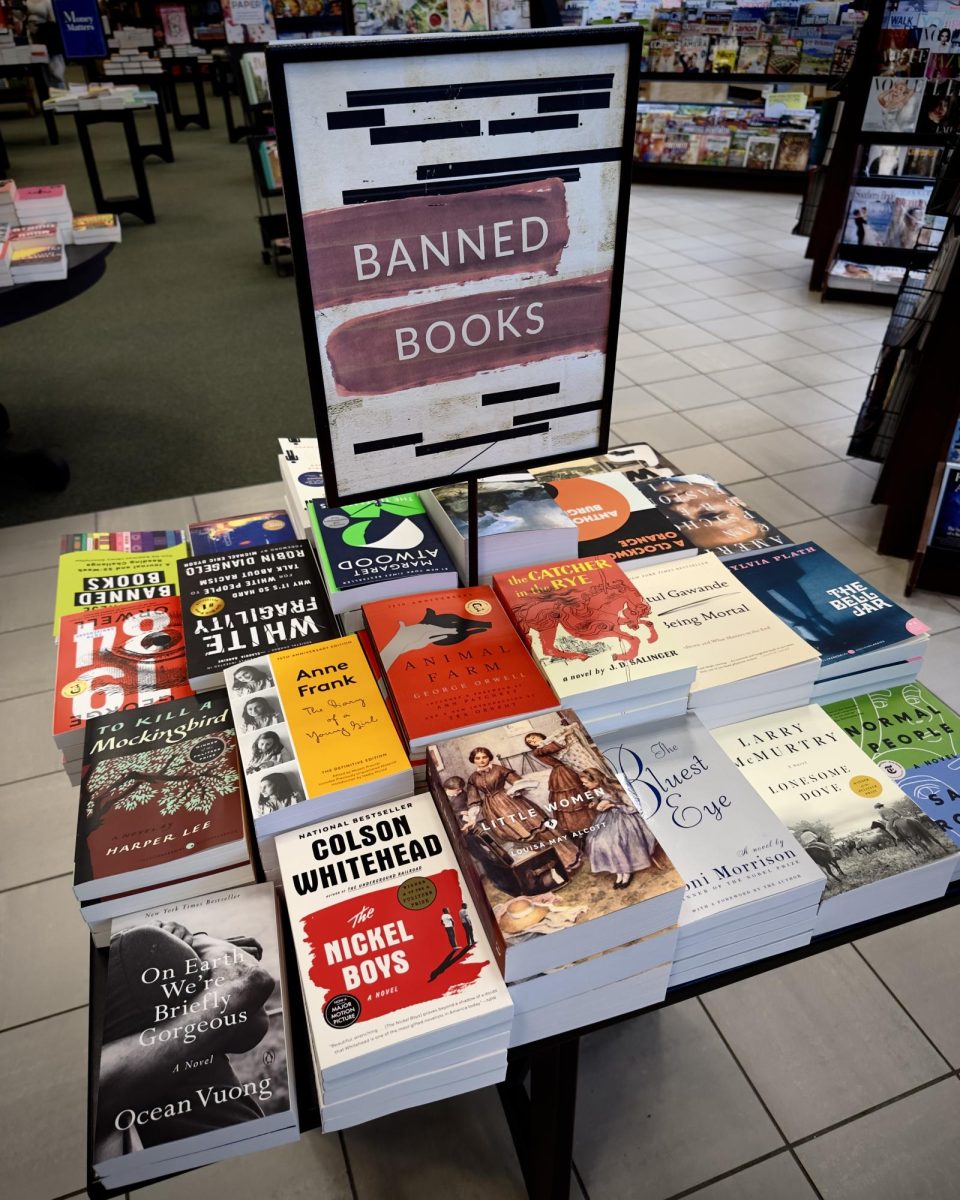In my eighth grade English class at Southern Lehigh Middle School, we had the opportunity to read “Fahrenheit 451” by Ray Bradbury: a 1953 dystopian novel in which books are highly censored and even outlawed at the heavy price of freedom. In 2025, we are reminded of Bradbury’s warnings.
Since 2021, PEN America has recorded almost 16,000 book bans in public schools nationwide. The organization notes that they have not seen these numbers since the Red Scare, a time of relentless persecution and paranoia, in which “Fahrenheit 451” was published.
The major push for censorship stems from efforts by Moms for Liberty. This extremist nonprofit organization advocates against school curriculum that includes content related to LGBTQ rights, race, ethnicity, critical race theory, and discrimination. The organization has 28 chapters in Pennsylvania alone, including in Lehigh County.
While school districts in 41 states currently uphold book bans, students at Southern Lehigh School District are privileged to access thousands of books without censorship. As part of a school board approved curriculum, many of our middle and high school English classes read some of the most commonly banned books in the US, such as “The Great Gatsby,” “A Raisin in the Sun,” “Animal Farm,” “Of Mice and Men,” and even “The Kite Runner,” which was the eighth most banned book in the nation in the 2023-2024 school year.
Harper Lee’s critically acclaimed 1960 novel, “To Kill a Mockingbird,” set during racial segregation, is a part of our ninth grade curriculum. The novel is of high literary merit, enriching students’ educations, and serves as an imperative historical piece. Along with reading the novel, students also research and learn about other important parts of our nation’s history, such as the Civil Rights Movement and the lynching of young Emmett Till. Despite the novel’s significance and relevance, Lee’s masterpiece sits in banned book sections nationwide, including our local Barnes & Noble at the Promenade Shops, due to its racial themes and historical depictions.
“‘To Kill a Mockingbird’ helped me understand, in further depth, the experiences of people in the South during the time of the Jim Crow Laws,” said junior Ellie Kane. “It teaches the importance of fighting for what is right and emphasizes the strength in respecting people around you.”
Book bans are not only a threat to education and cultural understanding but also to the First Amendment. In Island Trees School District v. Pico (1982), the Supreme Court ruled that school officials cannot remove books from a school library just because they disagree with the ideas contained in them, as this violates free speech. This was the only case related to book bans ever to reach the Supreme Court. However, many other cases have reached the lower courts. Despite this ruling, school districts continue to remove literature from their shelves without good reason, putting their students at a disadvantage and violating federal law.
Many angry bibliophiles have taken to social media, especially TikTok, to protest book bans and urge users to read as many banned books as possible. One of the most disturbing cases of censorship is Anne Frank’s “The Diary of a Young Girl,” which is a real-life account of a teenager experiencing the horrors of the Holocaust firsthand. Senior Lisa Tegyi read the book in middle school.
“I don’t think there’s anything inappropriate or ban-worthy in it,” said Tegyi. “It’s so important that we educate ourselves on the Holocaust to acknowledge the suffering that occurred as well as to develop an understanding of hatred and intolerance.”
However, it’s not just higher-level reads that are being censored. Tennessee school districts now ban 425 titles to comply with Tennessee state law, many of them being children’s books. Schools should consider age-appropriate titles for each grade level as well as take proper precautions as to what a young child should or should not be exposed to. But this does not mean that the best solution is an outright ban on literature for all students in a particular school district. If some guardians are convinced that their child’s required reading is unfit, these matters should be taken up on a student-by-student basis to prevent other students from missing out on powerful, enriching, and even life-changing pieces of literature due to an offended minority.
Senior Kasey Snyder believes that book bans limit free speech, but still finds some level of guidelines to be beneficial.
“Some younger readers with [access to] many works of literature without proper maturity or perspective can make assumptions or create false perceptions on the material, which squanders the author’s intent and purpose, ” said Snyder. “Through this frame of reference, some guidance on what books to read in schools is healthy for our education system and should not be discredited.”
During the presidential address to Congress on March 4, 2025, President Donald Trump claimed that he has completely stopped government censorship and has “brought back free speech in America.” But if this were true, literature would be protected from censorship, and states would not be allowed to outright ban books simply because they disagree with a certain message or content.
“Banning books is rewriting history,” said Kane. “And rewriting history only causes it to repeat itself.”



